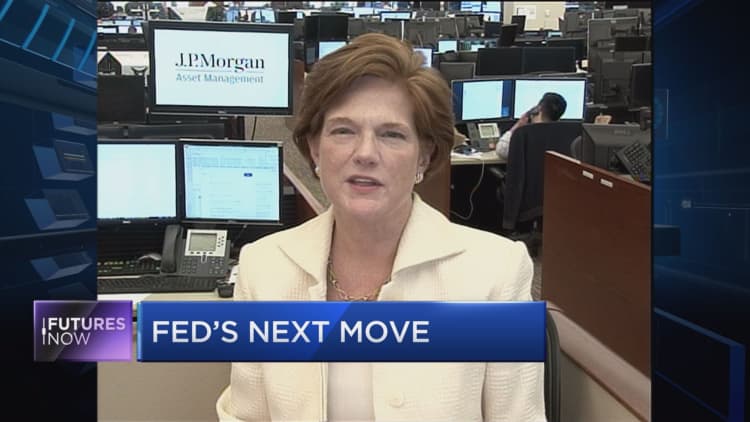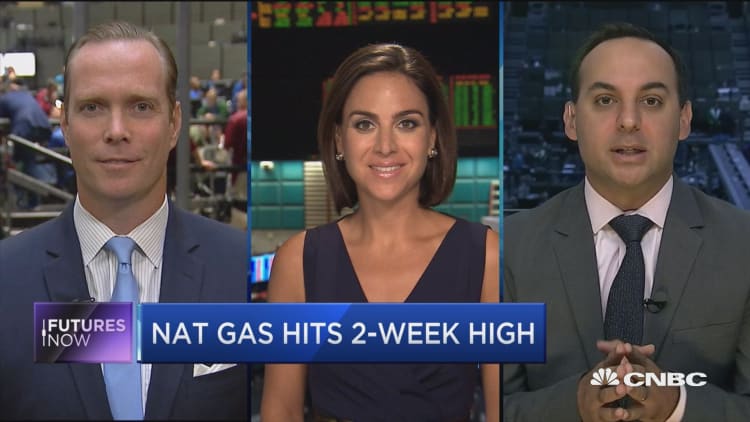


If you're waiting for Fed Chair Janet Yellen to give some guidance as to when she will hike interest rates, don't hold your breath — says one Wall Street firm.
"The market is hoping that she's going to give us clarification, not only on long-term monetary policies, but also some clarity on current monetary policy," explained JPMorgan's Priscilla Hancock on CNBC's "Futures Now" on Tuesday. "[However], it's likely that the market is going to be disappointed. [It] would be wise not to expect too much from Janet going into Friday."
Ahead of the upcoming Jackson Hole conference where Fed Chair Janet Yellen is scheduled to speak, investors are indeed pining for some concrete insight as to what the Fed's next move will be. However, Hancock firmly believes that Yellen's approach will remain extremely cautious and that it will continue to focus on a variety of factors including risk management and global monetary conditions.
This notion does come amid some recent hawkish rhetoric from San Francisco Fed President John Williams and New York Fed President William Dudley, but Hancock doesn't not envision a rate hike in the fall.
"We're still calling for a December rate hike," explained Hancock. "It seems to me that the GDP numbers and inflation are moving us down the path to where the Fed is going to look to a December hike. That is our base case."
In the second quarter of 2016, U.S. GDP increased at a yearly rate of 1.2 percent as inflation has steadily declined through the summer months.
Going forward, JPMorgan anticipates an extremely tight trading range for yields to continue, regardless of positive economic data, as the market remains cautious alongside Yellen.
"It's hard for the curve to flatten significantly from here," said Hancock. "Likewise, it's hard for the curve to steepen." Hancock reasons that this is because central banks are buying a significant amount of bonds every month, which limits the amount of movement global investors from Europe and Japan can cause through the trading of U.S. Treasurys.
In the last month, the U.S. 10-year has lost just 1 percent while the two- and five-year notes remain unchanged.
"Everybody is searching for yield," concluded Hancock. "Now we have a situation where the technicals are 'uber' strong and the demand is extraordinary. Any tiny tick up in rates is just met by demand. That's keeping yields down and it's keeping spreads tight."



